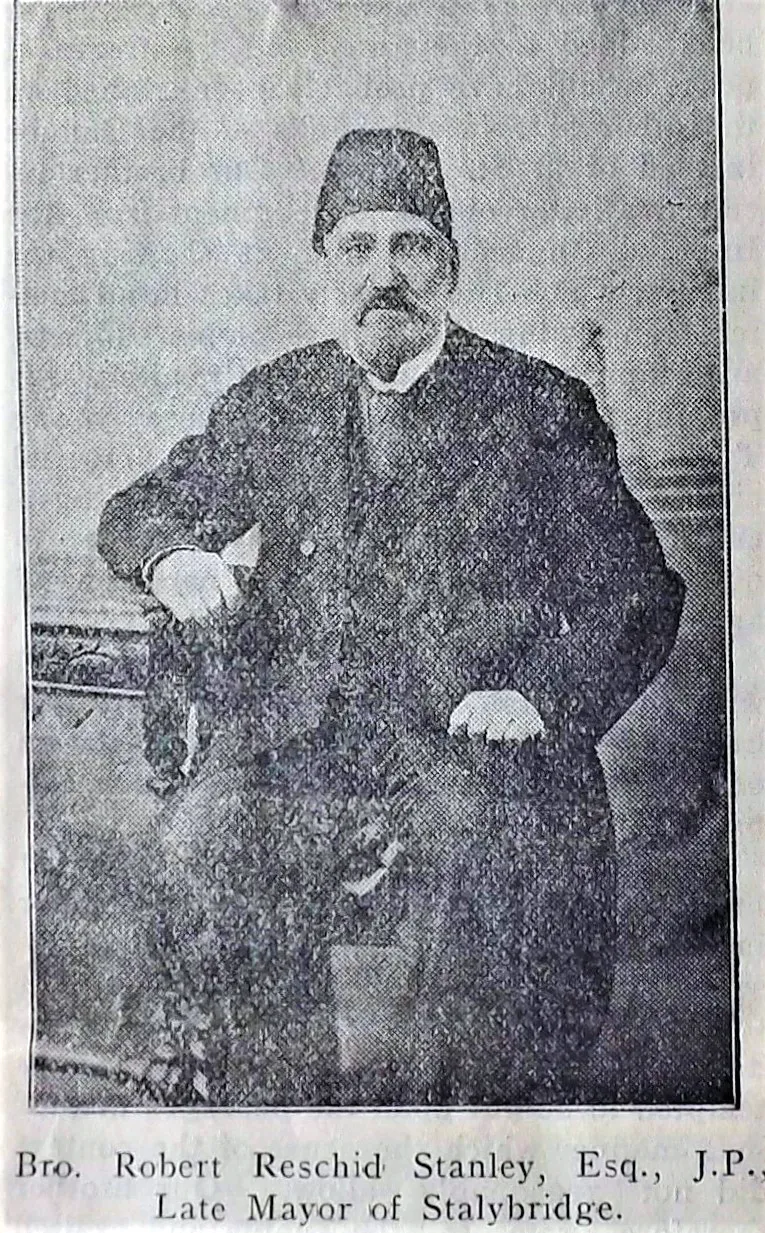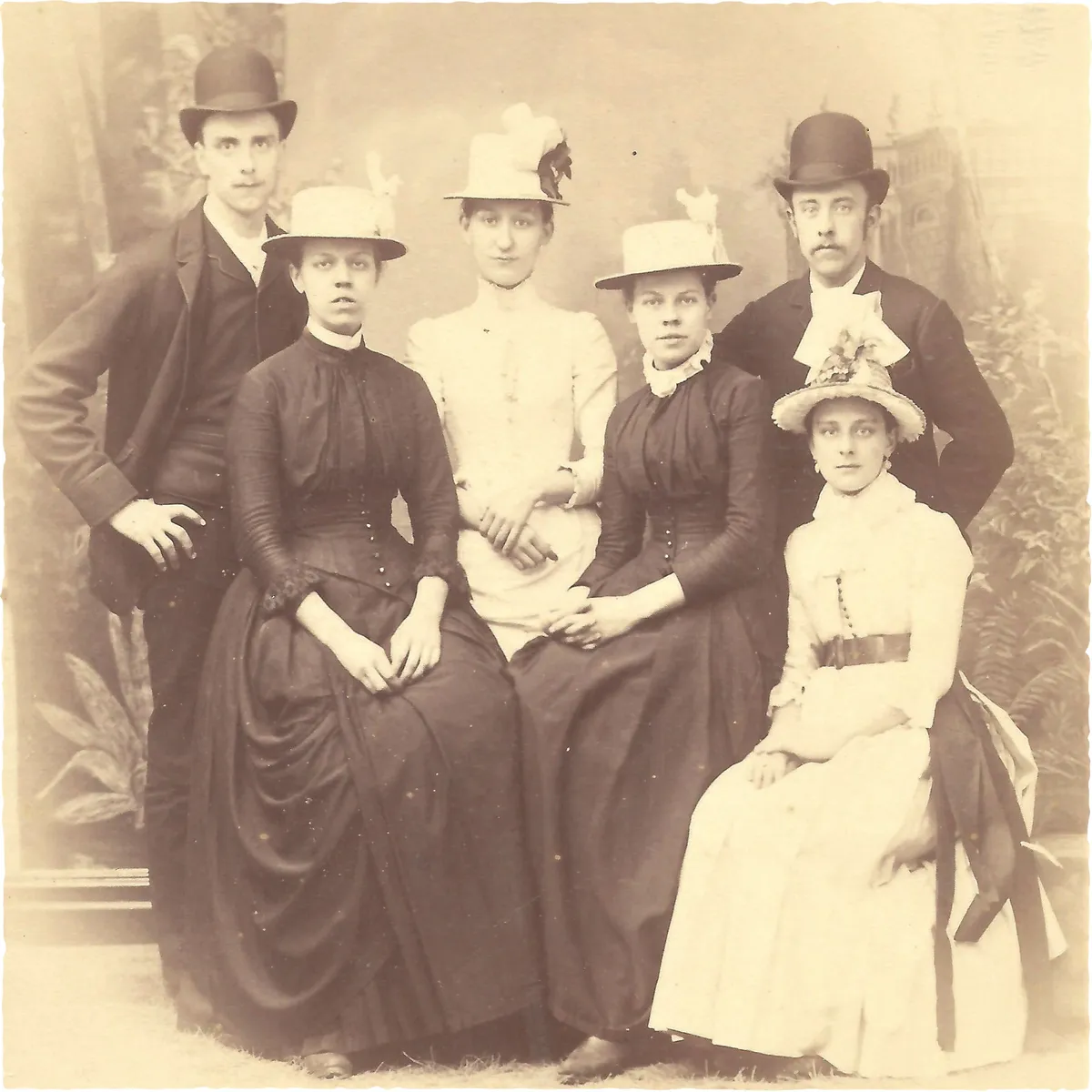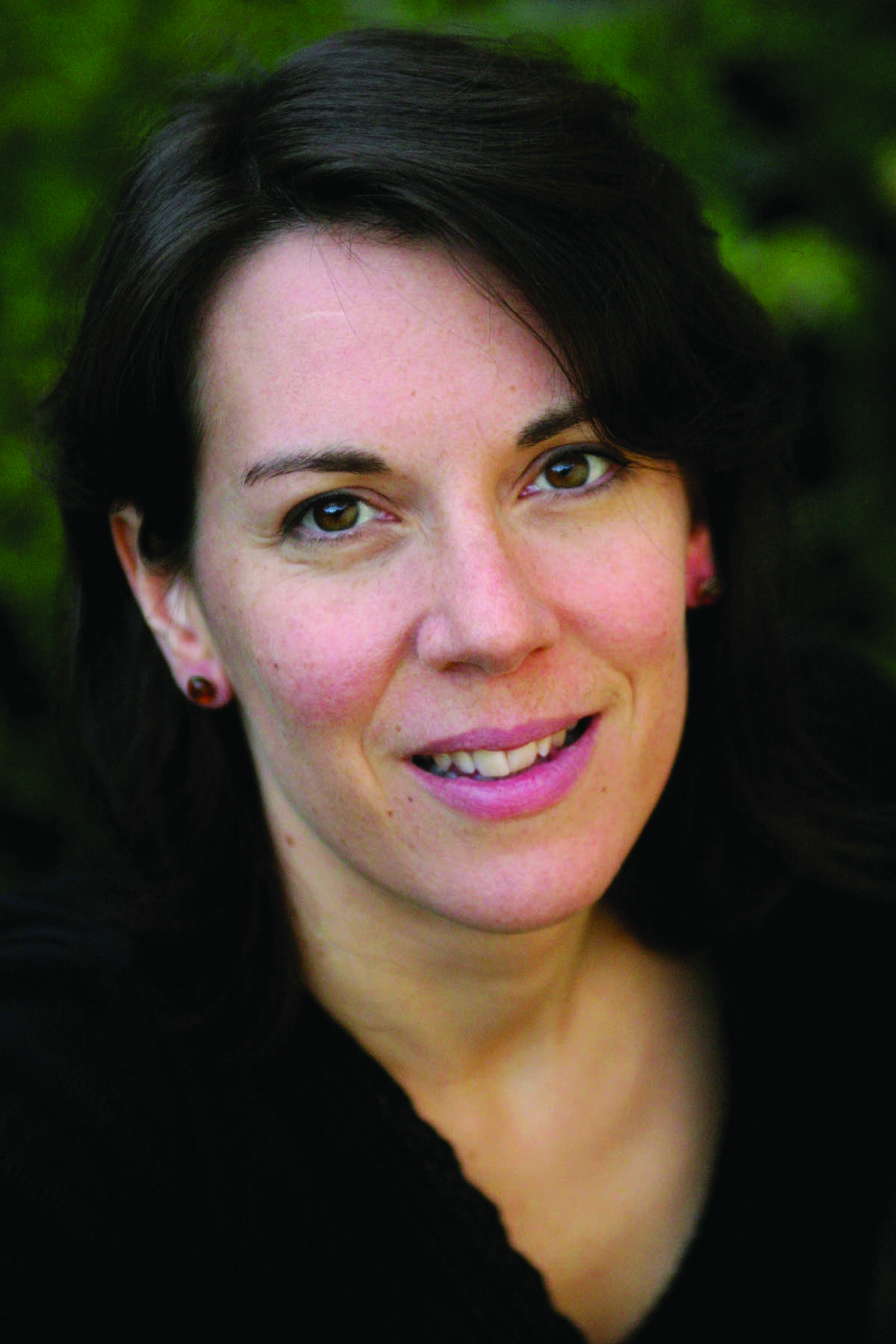Robert Stanley was under government surveillance in the tumultuous lead-up to the First World War.
But that is far from the most remarkable thing that Christina Longden and her dad, Brian, have discovered about their ancestor. In fact, Robert’s fascinating and unusual story has supplied enough material for not one, but two books by Christina.
“It began when my dad was made redundant in the late 1990s,” explains Christina. “All his life he’d wanted to do his family history but he’d never had the time, so he started looking into the most interesting characters including his great great grandad, Robert Stanley. We knew nothing about him, other than he’d been the mayor of Stalybridge.”
Brian told relatives he was researching the family, and was mystified when one of them sent him a battered copy of a publication called The Crescent from April 1907. Inside, there was a striking photograph of an elderly bearded man. He was every inch an English gentleman – except that on his head was a fez. The caption read: “Bro. Robert Reschid Stanley, Esq., J. P., Late Mayor of Stalybridge.” Christina and Brian were puzzled – had Robert really been a Muslim?
Published weekly, The Crescent was the first Islamic newspaper in Britain. Along with the monthly Islamic Review, it was produced in Liverpool at the First Mosque. The man behind both the mosque and publications, read around the world, was convert William ‘Abdullah’ Quilliam. “He had a massive international presence.”
The piece accompanying the photo is entitled “distinguished British Mussulman”, an old term for Muslim. In it Robert explained why he converted in 1898. “It’s all about rational logic and reason,” says Christina. “I think Quilliam wanted to use it as evidence that the converts were making sensible, careful choices. Robert was a respectable mayor – it was very clever.”

Political influence
Helpfully for Christina, The Crescent repeated a list of Robert’s achievements from the Stalybridge Municipal Yearbook. “He had been a Tory, and had been to Parliament as an expert advisor for the 1869 Parliamentary Committee on whether the working class should have a secret ballot.” He wanted to put an end to employers forcing their workers to vote a certain way. At the Parliamentary Archives, Christina found the records of the select committee he’d appeared before. “There were pages and pages recording what he’d said – it was great to see his actual words. He’d left no other written record at all, and there he was talking to the biggest names in British politics.”
It was an amazing achievement for someone who started off as a grocer. Trawling through the local papers on microfiche, Christina followed his political career. “He was the first working-class mayor. When he was appointed, the papers joked: ‘A curious proceeding has taken place with regards to the Town Council this week – a grocer has been elected to the office of Mayor.’”
Christina’s ancestor rubbed shoulders with other famous people: “I had a hunch about him knowing the Pankhursts, who had lived in the Chorlton area of Manchester during this period, from an article in WDYTYA? Magazine.” The Pankhursts had indeed lived literally around the corner from Robert and his family, and Emmeline had signed his wife Emma’s death certificate.
One in ten
Robert came from a large family. His parents, William and Ann, met in Dukinfield and went on to have 10 children. “We worked out that Ann must have got pregnant with her first when she was 12!” William disappeared for a bit: “We think the family didn’t approve, and sent him away.” Upon his return the couple went to live in Cardiff, where the baby was born (as was Robert 20 years later).
Christina’s Auntie Gay found William in the local newspapers claiming he was being overtaxed for his work as a hatter. “He challenged them in court. The Welsh high sheriff came down on his side, and said they were discriminating against non-Welsh-born taxpayers. I think that’s one of the things that switched Robert on to justice.”
When he was 10, Robert was sent to work in his uncle John’s shop in Ashton-under-Lyne. Robert’s marriage certificate shows that he married in the town’s Christian Israelite Sanctuary. “The Christian Israelites were a sect who in the 1820s received unwelcome national attention because of the ‘Seven Virgins Scandal’.” And John Stanley had been a Christian Israelite leader.
It all started when the self-proclaimed prophet John Wroe came to the town in the 1820s to build the New Jerusalem. “He was literally trying to build the city walls around Ashton-under-Lyne,” says Christina. The Industrial Revolution created widespread poverty and disease; people were desperate. The Christian Church was failing massively, so John Wroe walked into a power vacuum. His downfall came when he was alleged to have taken seven ‘handmaidens’ to see to his every need, and two of them accused him of impropriety.
“Nothing was ever proved. However, there were two massive riots in Ashton after the scandal. The sanctuary was ripped apart, and church members’ homes were wrecked. I can imagine Robert thinking the Christian Israelites had been treated badly.
“I think one reason why Robert was drawn towards Islam is that the Christian Israelites’ beliefs he’d grown up with followed Mosaic Law closely, as does Islam. Perhaps when he met the Muslims, it all felt familiar.”

Secrets and spies
Christina believes that the family may have covered up Robert’s conversion, and she has some theories why. In an era when there was huge suspicion of Russia, and its agents were deemed to be everywhere, he marked himself out with his fascination with foreign politics and his sympathy for countries that had suffered at the hands of the British.
“While still a grocer, he chaired a massive debate in Stalybridge on the slave trade and the American Civil War. He also had a tea-trading office at the Corn Exchange in Manchester, where he would have met traders and got a different view of world politics,” she explains. “In 1876, there was an incident Gladstone named the Bulgarian Horrors, during which thousands of Bulgarians were massacred.” Mayors were called on to hold meetings to condemn it, but Robert, then mayor of Stalybridge, refused, believing that British activities had partly triggered it. This didn’t go down well at the time.
By the early 1900s, all of the leading white Muslim converts were under surveillance by the Government, because Turkey was moving closer to an alliance with Germany and there were close ties between the mosque and Turkey. “Robert, who was vice chairman of the First Mosque, and Quilliam had been advising the caliph on various things, so they were under suspicion as being potential traitors.” Quilliam fled the country in 1908 for Turkey.
Christina suspects that if Robert’s family had known any of this, they would have been horrified. “I think the cover-up was probably down to a mix of fear, because the First World War was teetering on the edge, and also embarrassment because Robert would have been perceived as a bit eccentric.”
After Quilliam left, the white converts dispersed. Robert returned to Stalybridge, and died in 1911. “We found his grave in the local churchyard, though we don’t think he’d renounced being a Muslim.” It was a family plot where his wife Emma and some of their children were buried. “But three weeks after we found him, it was demolished,” says Christina. The council built a car park over the top.
Thankfully, several mementoes of Robert’s life have survived. Among them is a tie pin that Brian found in his mother’s jewellery box and was associated with the First Mosque, and his fez which an elderly cousin passed on.
Now Robert’s actions, too, have been reclaimed by the family, memorialised in Christina’s books: the biography His Own Man and the novel Imagining Robert. In a coincidence she still finds hard to believe, her brother Steven converted to Islam a decade before they knew anything about Robert. And in celebration of his ancestor, Steven and his wife passed Robert Reschid’s name down to their son.
